job analysis definition in management
Job analysis refers to a systematic process of collecting all information about a specific job including skill requirements roles responsibilities and processes in order to create a valid job description. The methods and equipments used and the skills and attitudes required for successful performance of the job.

Job Analysis Definition Importance Components Methods Purpose Process
Work Analysis is a process by which each job is systematically documented.

. This function creates a collection of information which is very useful to do other functions in HRM. What is a job analysis. Definition of Job Analysis.
The job analysis in Human Resource Management HRM provides clarity about different components of the job and the circumstances in which the job should be performed. A job analysis is the process where judgements are made about data. N The information needed to conduct a job analysis.
A job analysis can also assess under which conditions the employee performs the job and discover how that role might affect other roles in the company. Job Analysis is a process to identify and determine in detail the particular job duties and requirements and the relative importance of these duties for a given job. Job analysis is the procedure through which you determine the duties and nature of the jobs and the kinds of people who should be hired for their goal.
Serves as a reference guide to move employees in the correct work-related direction. Through this an organization gets a clear and unambiguous idea about a position staff and work. It analyses the work content of job job content of work.
What is a Job Analysis. Job Analysis - A Basic Understanding. It is a procedure for determining the duties and skill requirements of a job and the kind of person who should be hired for it.
What is Job Analysis Definition by Management Thinkers Dale Yoder Donald Opines and Michael J. It is a study and collection of information related to the operation and responsibility associated with the job there are three important components of job analysis job description and job specification. Aids the supervisor and employee in defining each employees duties and related tasks.
Job analysis not only focuses on the job but also focuses on the job holder. Job analysis is essential documentation and a fundamental resource for human resources management actions including recruiting compensation training and assessment and. Job analysis is a systematic and detailed examination of jobs.
Job analysis is primary tool in personnel management. It specifies the tasks involved in a job and the factors that influence the performance of that job. A job analysis examines the role or position itself and.
Analysis of work is considered as an urgent measure for formulating plans on the vital energy of the organization. It also involves determining the relative importance of the duties responsibilities and physical and emotional skills for a given job. N The history of job analysis.
A personnel manager has to undertake job analysis so as to put right man on right job. Job analysis is an important part of human resource management. The purpose of job analysis is to establish what a job entails including the required knowledge skills and abilities or KSA as well as job duties and responsibilities and the conditions of the job.
Job analyses are conducted by the HR department. In this method a personnel manager tries to gather synthesize and implement the information available regarding the workforce in the concern. The process of job analysis leads to development of two documents viz job description and job specification.
It also involves the determination of the qualifications needed to succeed in a job as well as the work environment in which the job is performed. When considering the definition of job analysis basically it is a process that collects and analyzes information about a particular job and the job holder. Job analysis has been defined as the process of determining by observing and study the tasks which comprise the job.
Job analysis is an essential prerequisite for the effective management of the human resources of an organization. Job analysis is the basis of job description and specifications. Job analysis is the process of assembling activities into specific job descriptions and describing how each job relates to other jobs within an organization.
N The role of job analysis in conducting HRM activities. Job analysis is the process of collecting and analyzing data about the roles and responsibilities of an available position within an organization. Job analysis is an important part of human resource management and the initial step in the recruitment and selection process.
Prescribes the importance and time requirements for a workers effort. Job analysis is the practice of gathering and analyzing details about a particular job such as the required responsibilities day-to-day duties hard and soft skills qualifications education expected outcomes interaction required both internal and external performance standards working conditions required physical abilities and nature of supervision. The meaning of JOB ANALYSIS is determination of the precise characteristics of a job or position through detailed observation and critical examination of the sequential activities facilities required conditions of work and the qualifications needed in a worker usually as a preparatory step toward a job description.
N The sources of job information that can be used. Job Analysis is a systematic exploration study and recording the responsibilities duties skills accountabilities work environment and ability requirements of a specific job. It provides an indication of the skills and qualifications required for each position.
A job analysis is the process of studying a role or position learning what activities it performs and what skills are necessary for the job. A systematic examination of the tasks performed in a job and the competencies required to perform them A study of what workers do on the job what competencies are necessary to do it what resources are used in doing it and the conditions under which it is done A job analysis is NOT an evaluation of. Job analysis is a process of determining which characteristics are necessary for satisfactory job performance and analysing the environmental conditions in which the job is performed.
It is a study and collection of information related to the operation and responsibility associated with the job there are three important components of job analysis job description and job specification. The job analysis in Human Resource Management HRM provides clarity about different components of the job and the circumstances in which the job should be performed. It is the process of gathering relevant information about a job.
There are two outcomes of job analysis. Job analysis also gives an overview of the physical emotional related human qualities required to execute the job successfully.

Job Analysis Definitions Methods Process Importance Of Job Analysis
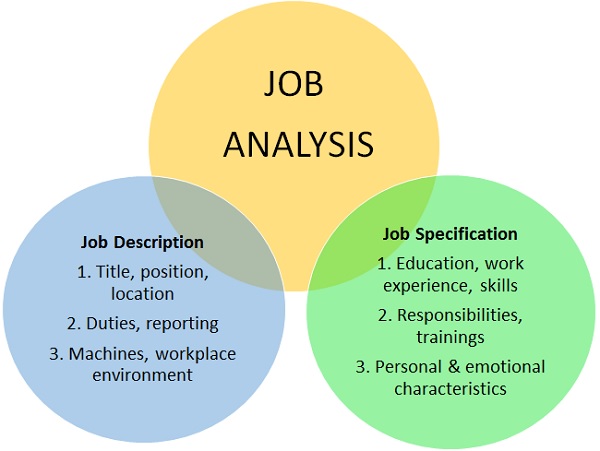
Job Analysis Meaning Importance Process Mba Skool
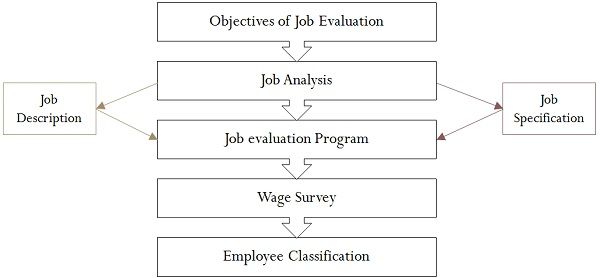
Difference Between Job Analysis And Job Evaluation With Comparison Chart Key Differences

Job Analysis Definition Importance Components Methods Purpose Process
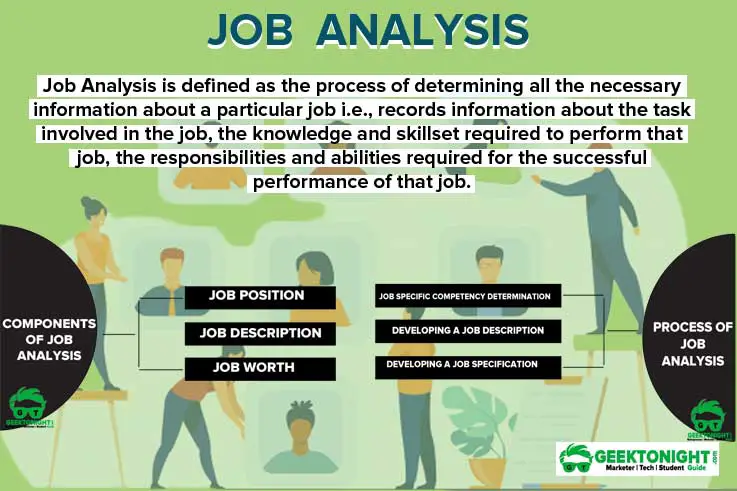
What Is Job Analysis Components Process Methods Uses
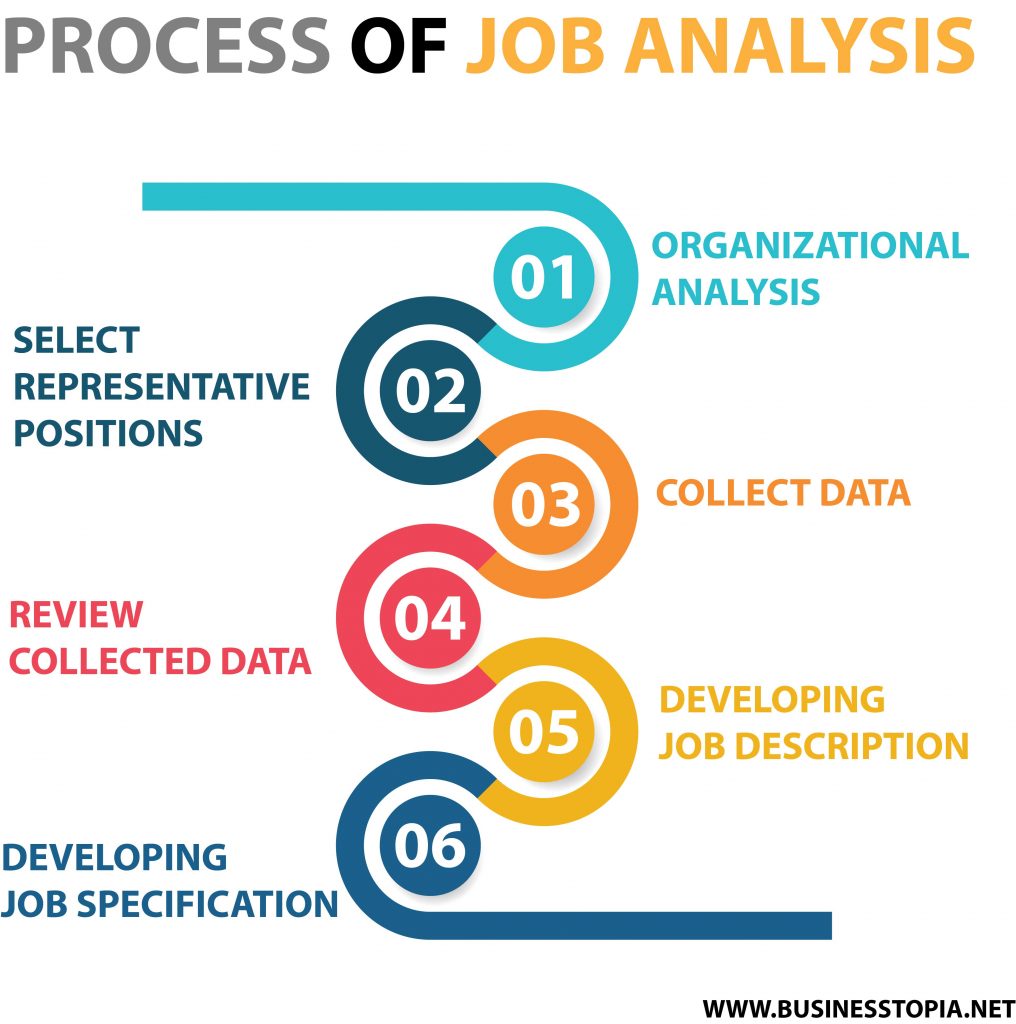
Job Analysis Definitions Methods Process Importance Of Job Analysis

Job Description And Job Specification Definition Examples Career Cliff
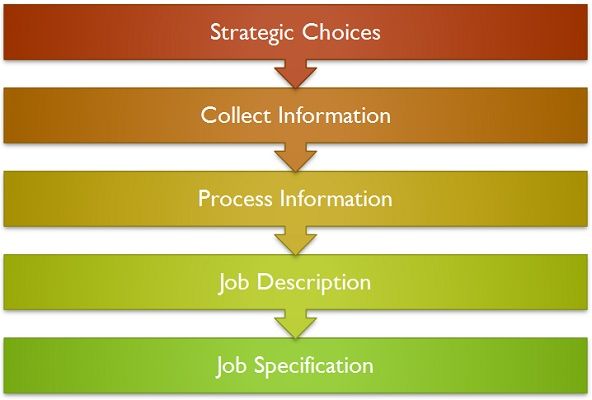
Difference Between Job Analysis And Job Evaluation With Comparison Chart Key Differences

Difference Between Job Analysis And Job Design Leverage Edu

Difference Between Job Analysis And Job Description With Comparison Chart Key Differences

Job Specification Job Specification Job Analysis Hr Jobs

What Is The Process Of Job Analysis Definition And Meaning Business Jargons

Methods Of Job Analysis Job Analysis Analysis Job

Selection Process Definition Steps In Selection Process The Selection Performance Appraisal Employment Application

Job Analysis Definitions Methods Process Importance Of Job Analysis

Job Description Job Specification Definition Purpose Ppt

Job Analysis Definition Importance Components Methods Purpose Process

